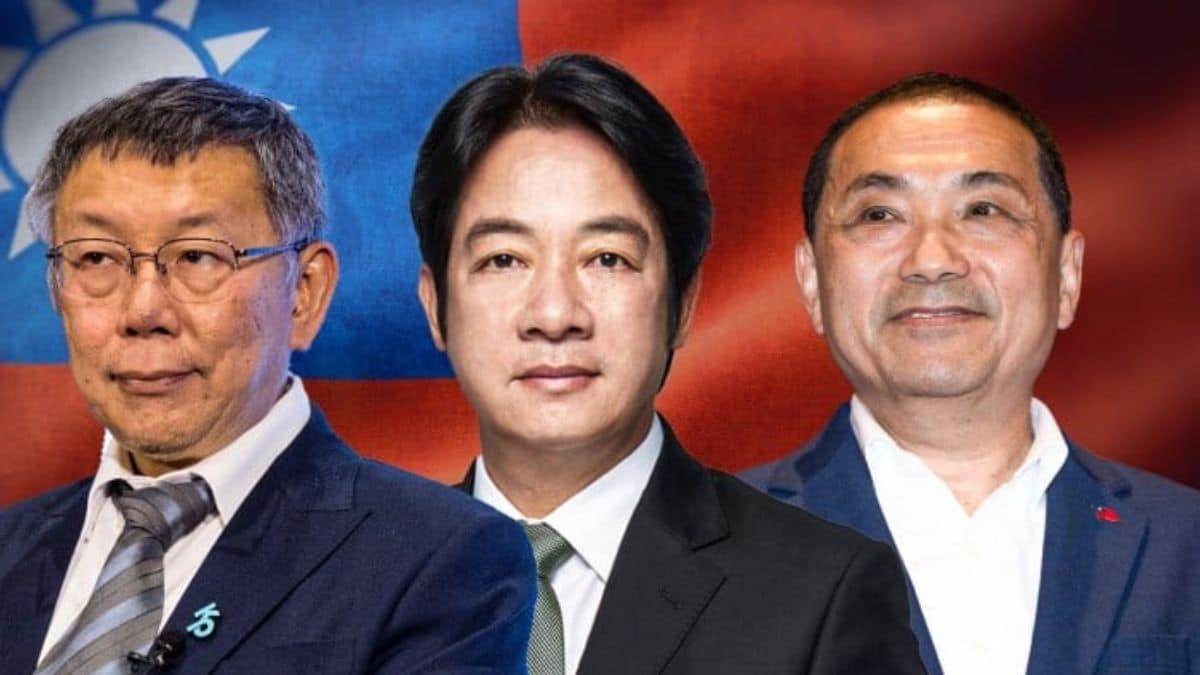As Taiwan prepares for presidential and parliamentary elections on Saturday, the political stage is set with three distinct presidential candidates. The race is taking place against the backdrop of complex cross-strait relations and diverse policy platforms, with the incumbent president, Tsai Ing-wen, constitutionally barred from seeking a third term.
Lai Ching-te
Lai Ching-te, also known as William, is elected as the Democratic Progressive Party’s (DPP) candidate. Lai, who is currently Taiwan’s vice president and the chairman of the DPP, brings a wealth of political experience to the table. Lai, who was born into a coal mining family, has been a vocal advocate for Taiwan’s independence, drawing criticism from China.
His stance on maintaining the status quo across the Taiwan Strait and preserving Taiwan’s formal name, the Republic of China, is consistent with President Tsai Ing-wen’s approach. Both leaders reject China’s claims to sovereignty over Taiwan and have repeatedly offered talks with Beijing, only to be rejected because Beijing regards them as separatists.
Lai, 64, has a long political career, having previously served as a lawmaker, Tainan mayor, and premier. Hsiao Bi-khim, his running mate, strengthens the ticket by bringing her experience as Taiwan’s former de facto ambassador to the United States.
Hou Yu-ih
Hou Yu-ih, 66, represents Taiwan’s main opposition party, the Kuomintang (KMT). After being re-elected mayor of New Taipei by a landslide in 2022, he took a leave of absence to run for the presidency. The KMT, which has historically favoured closer ties with China, denies being pro-Beijing.
Hou advocates resuming talks with Beijing, with cultural exchanges serving as a starting point. He, on the other hand, is vehemently opposed to China’s “one country, two systems” model and believes that Taiwan’s people should decide their fate. Hou, a former top police officer in Taiwan, emphasizes the importance of strengthening the island’s defences and maintaining strong ties with the US.
His running mate, the assertive media personality Jaw Shaw-kong, injects energy into the KMT ticket. Hou, who is critical of Lai Ching-te, portrays him as a dangerous separatist and denies any ties to China’s communist party. Hou is a staunch opponent of Taiwan’s independence, supporting the KMT’s position of a single China with each side interpreting its meaning.
Ko Wen-je
Ko Wen-je, a former Taipei mayor who founded the Taiwan People’s Party in 2019, is the presidential outsider. Ko, a trained surgeon, has gained popularity by focusing on everyday issues such as the high cost of housing, which has resonated particularly with the younger demographic. As the true change candidate, Ko emphasizes the importance of Taiwan’s democracy and way of life being respected in dealings with China.
Despite initial talks with the KMT about forming a joint ticket, talks broke down in November due to significant disagreements. Cynthia Wu, a lawmaker with ties to the Shin Kong Group conglomerate, was chosen as Ko’s vice presidential candidate. Ko’s pragmatic approach and emphasis on socioeconomic issues stand in stark contrast to the other candidates’ more traditional political narratives.
Taiwan’s presidential election goes beyond individual candidates and policy platforms. The complexities of cross-strait relations, with China viewing Taiwan as part of its territory, add additional layers of geopolitical significance to the elections. Because of Taiwan’s strategic location in the Asia-Pacific region, the outcome of the elections is critical not only for the island but also for regional stability.
Taiwan is at a crossroads in its political landscape as the elections approach. The presidential candidates’ diverse profiles reflect not only individual leadership styles but also the island’s multifaceted challenges. The chosen leader will play a critical role in shaping Taiwan’s trajectory in the coming years, from navigating cross-strait relations to addressing socioeconomic concerns.

